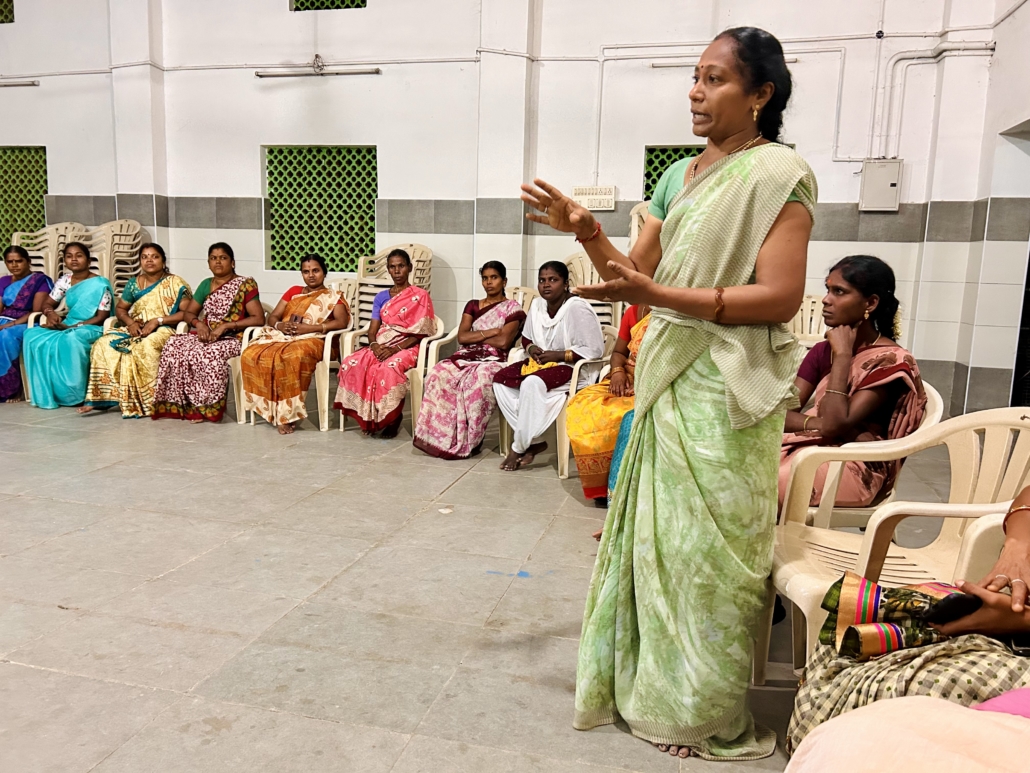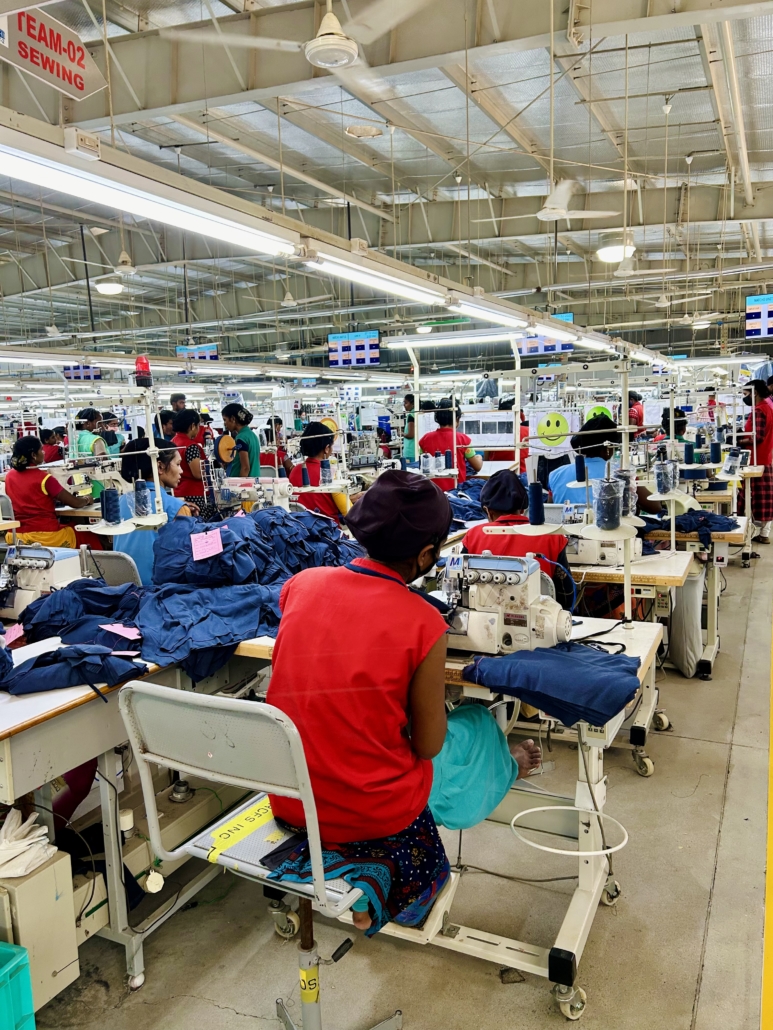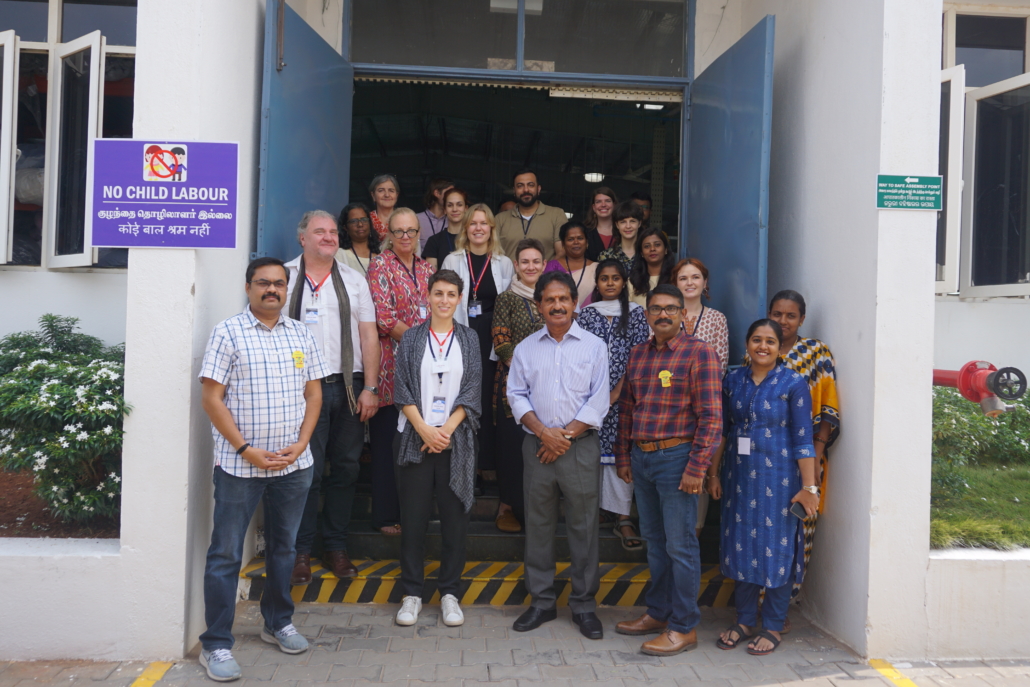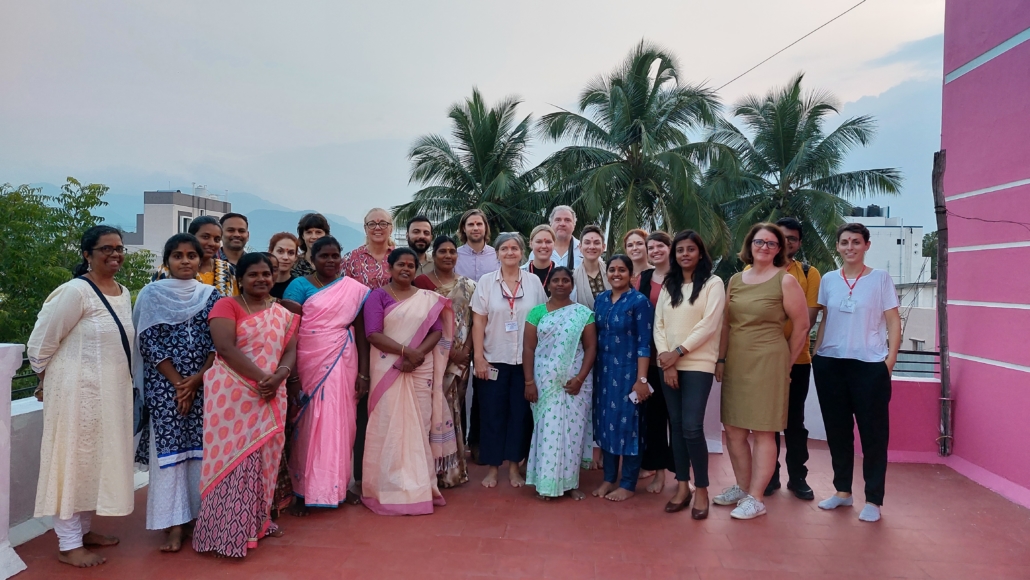Gender equality and workers' rights in the textile sector
Gender equality and workers' rights in the textile sector
It was both a moving and affirming moment for the German multi-stakeholder delegation visiting India when Thivya Rakini, President of the Tamil Nadu Textile and Common Labor Union (TTCU), spoke about the motivations behind her work: about the serious abuses in the Indian textile industry, ranging from underpayment and sexual assault in the workplace to deaths caused by violence at the hands of superiors. The union’s response to this is the first legally binding agreement against gender-based violence in Asia, which TTCU, along with Asia Floor Wage Alliance and Global Labor Justice-International Labor Rights Forum, negotiated with fashion brands and a factory in southern India: the Dindigul Agreement to Eliminate Gender-Based Violence and Harassment. Having entered into force in April 2022, it is already showing success, says Rakini. The year one progress report can be accessed here.
To take a closer look at this, a delegation of experts from Germany set off from Delhi to the southern Indian city of Dindigul on December 7th to engage in a personal exchange with stakeholders of the Dindigul Agreement and discuss prospects for expanding the agreement. Representatives from members of the Textile Partnership and the Partnership Secretariat took part in the trip. Furthermore, representatives from the German Federal Ministry for Economic Cooperation and Development (BMZ), a WZ officer and a BMAS representative from the German Embassy in Delhi also traveled with them. The trip was organized by the sector project "Social and Ecological Transformation of Textile Supply Chains" (SV SETTS), which provides the secretariat of the Textiles Partnership and is implemented by the Deutsche Gesellschaft für Internationale Zusammenarbeit (GIZ) GmbH on behalf of BMZ.
Partnership initiative campaigns for further agreements
The Dindigul Agreement aims to eliminate all forms of violence against women in the workplace and is also supported by the Partnership for Sustainable Textiles. The Partnership initiative "Advancing Worker-Led Agreements on Gender Justice", launched in October 2023, builds on the model of the Dindigul Agreement. It is committed to ensuring that other fashion brands and their suppliers conclude such agreements in order to contribute to a positive change in working conditions, particularly with regard to gender-based violence in the textile sector in India. Those responsible for the Partnership Initiative who took part in the delegation trip were able to use the opportunity to learn from the experiences of the stakeholders involved in the Dindigul Agreement, to see the successes already achieved, such as the establishment of a Shop Floor Monitor System or an Internal Complaint Committee staffed exclusively by women, and to intensify cooperation with the stakeholders on the Indian side.
Focus on the stakeholders' perspective
Prior to the meetings in the south of the country, the expert delegation had already met other players in the textile sector in Delhi. An important aim of the trip was to get to know the perspective of local stakeholders better in order to initiate and shape future collaborations - such as the joint Partnership Initiative - in a more targeted manner. For example, the delegation met representatives of the Indian Ministry of Textiles, the ILO, the Indo-German Chamber of Commerce and UNDP as well as the Dutch Embassy. In addition to gender equality and the rights of workers in the textile sector, perspectives for a circular economy and the EU textile strategy were also discussed.
At a stakeholder dialog in Coimbatore, the perspectives of local and international NGOs and local trade unions were discussed in more detail. Trade union representatives from TTCU joined NGOs such as the Asia Floor Wage Alliance, Cividep, Fair Wear Foundation, Ethical Trading Initiative and the Tiruppur Exporters' Association (TEA), whose representatives operate large supplier factories such as Eastman Exports, to discuss structural obstacles to more workers' rights, better wages and a non-violent workplace. The exchange was supplemented by the views of the purchasing fashion brands C&A and Primark, which source clothing from nearby factories.
The Partnership Initiative team will now use the insights gained to learn from the experiences of the Dindigul Agreement and continue to pursue its collaborative approach between all stakeholders. The success of the Dindigul Agreement after just one year and the work of the TTCU in particular left a deep impression on all participants.
Noor Naqschbandi, Program Manager of SV SETTS, was also part of the expert delegation and assesses the meetings with actors from the textile sector, partners from development cooperation and employee representatives and the detailed insights into the Indian textile sector positively:
"The outcome of the Dindigul Agreement, to us, is a confirmation of the multi-stakeholder approach that the Partnership for Sustainable Textiles pursues. Maintaining a dialogue with companies and civil society is and remains key to achieving better working conditions in the textile industry in the long term.”
Should your company be interested in participating in the Partnership Initiative, please contact us via mail@textilbuendnis.com. Being a member of the textile partnership is mandatory for partaking in an initiative.







